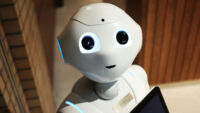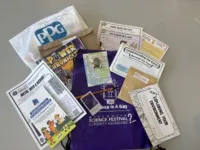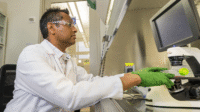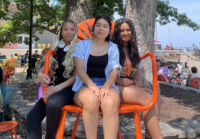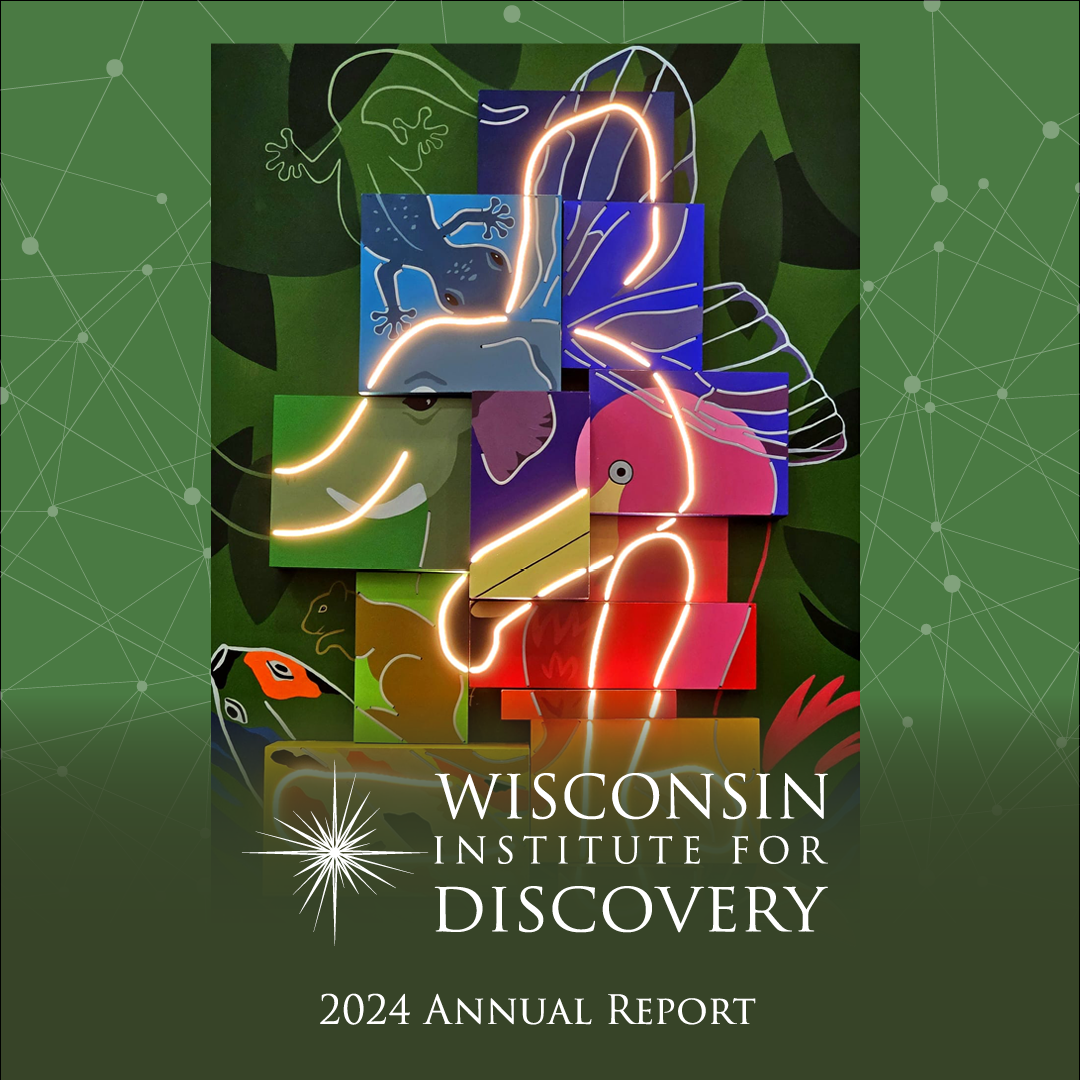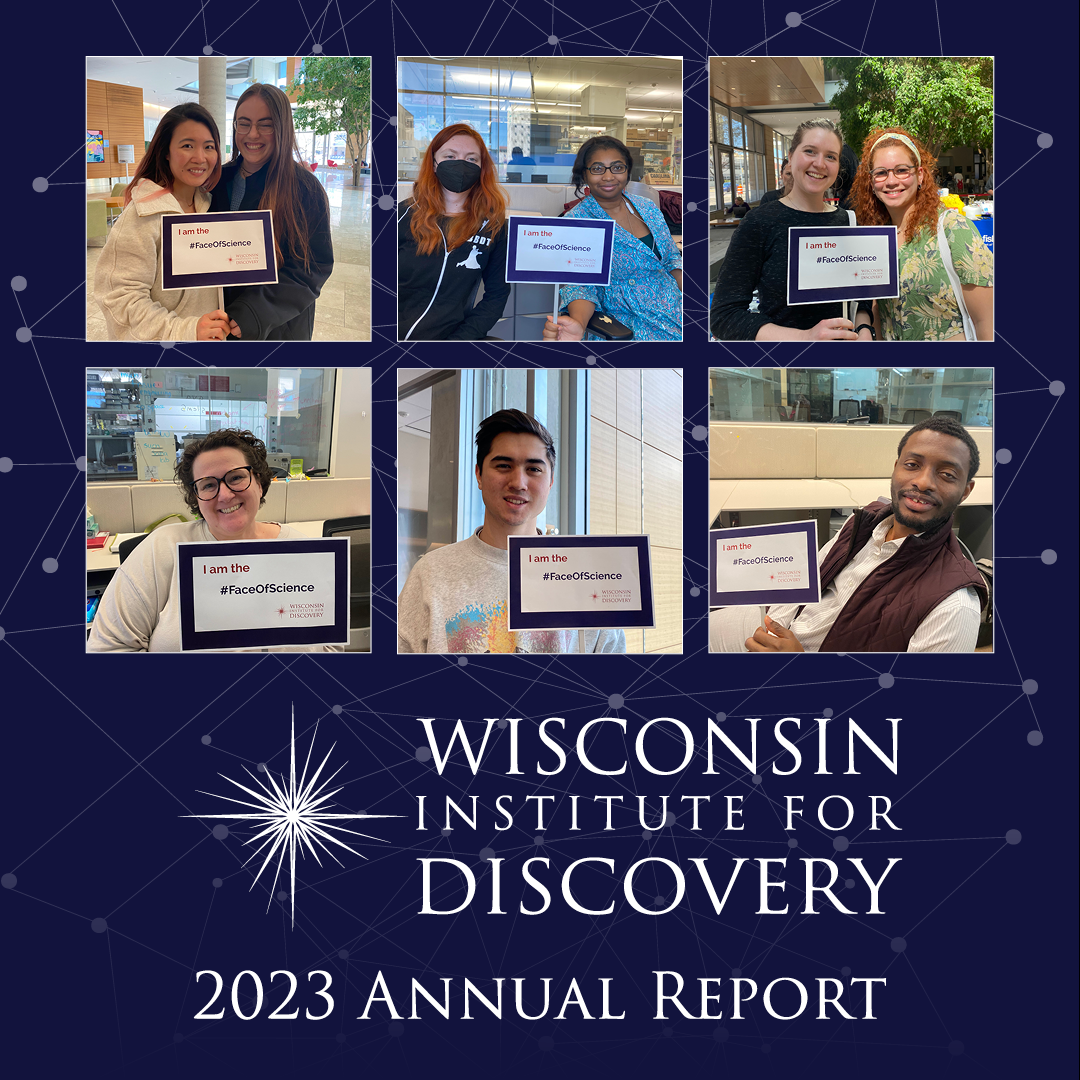Stories
Research Across the AI Spectrum
Backed by funding from the National Science Foundation, College of Letters & Science faculty, including Discovery Fellow, Bilge Mutlu, are tackling a red-hot research topic.
Wisconsin Science Festival makes curiosity to go with “Science in a Bag”
The Wisconsin Science Festival (WSF), now in its 15th year, returns Oct. 16-26 with more than 600 events across 56 counties—breaking its previous record of 52 counties. What began in 2011 as a three-day, Madison-only gathering has grown into a 10-day, statewide celebration of science, technology, engineering, art and math for people of all ages, backgrounds, and interests. A centerpiece of this festival is Science in a Bag — an initiative that will deliver 3,000 drawstring backpacks, each filled with ten to twelve hands-on experiments and activities designed to spark curiosity, plus access to an online portal for more ways to engage with STEAM.
CRISPR with a ‘dimmer’ could elevate precision gene editing
“This platform has the potential to ‘dim’ genome editing in a wide variety of contexts,” says WID faculty, Krishanu Saha, “not only inside the body, but outside the body, and also has implications for fundamental studies of how genome editing occurs in cells, in tissues, and in animals.”
LEAP Forward Internship Gives Madison High Schoolers an Inside Look Into Tiny Earth
Headquartered at UW–Madison’s Wisconsin Institute for Discovery, Tiny Earth combines undergraduate research with antibiotic discovery. This summer, three Madison-area high school students joined the Tiny Earth team through the six-week LEAP Forward Internship Program. Gyselle, Natania, and Neshia contributed to Tiny Earth databases, supported instructor trainings, and explored diverse research pathways. Since 2019, Tiny Earth has welcomed interns to learn about antibiotic discovery, science communication, and research administration. As one student shared, “Working with Tiny Earth was especially eye opening. Learning about how antibiotics are developed and how they affect bacterial growth was scientifically enriching.”
Announcements
24 Hours with WID
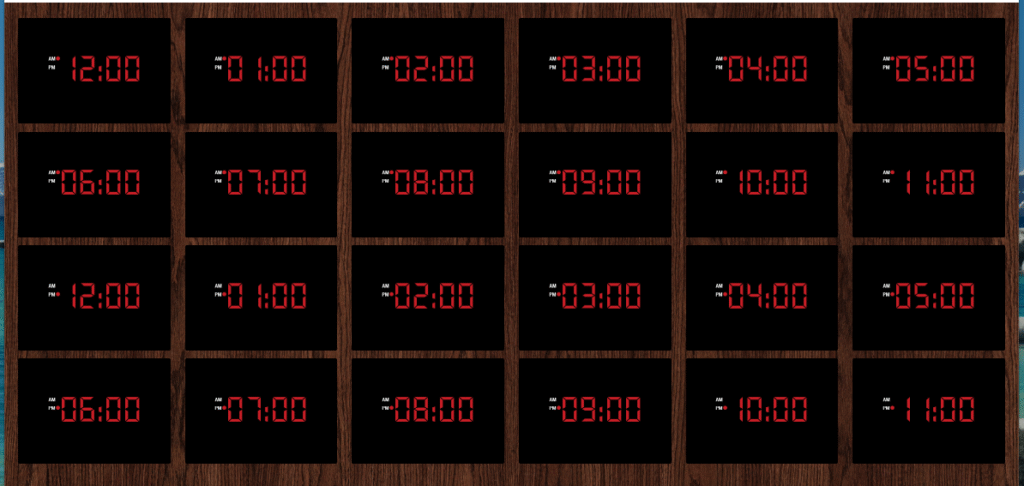
Follow Us
Learn more about the Wisconsin Institute for Discovery through quarterly newsletters and receive our annual report.

